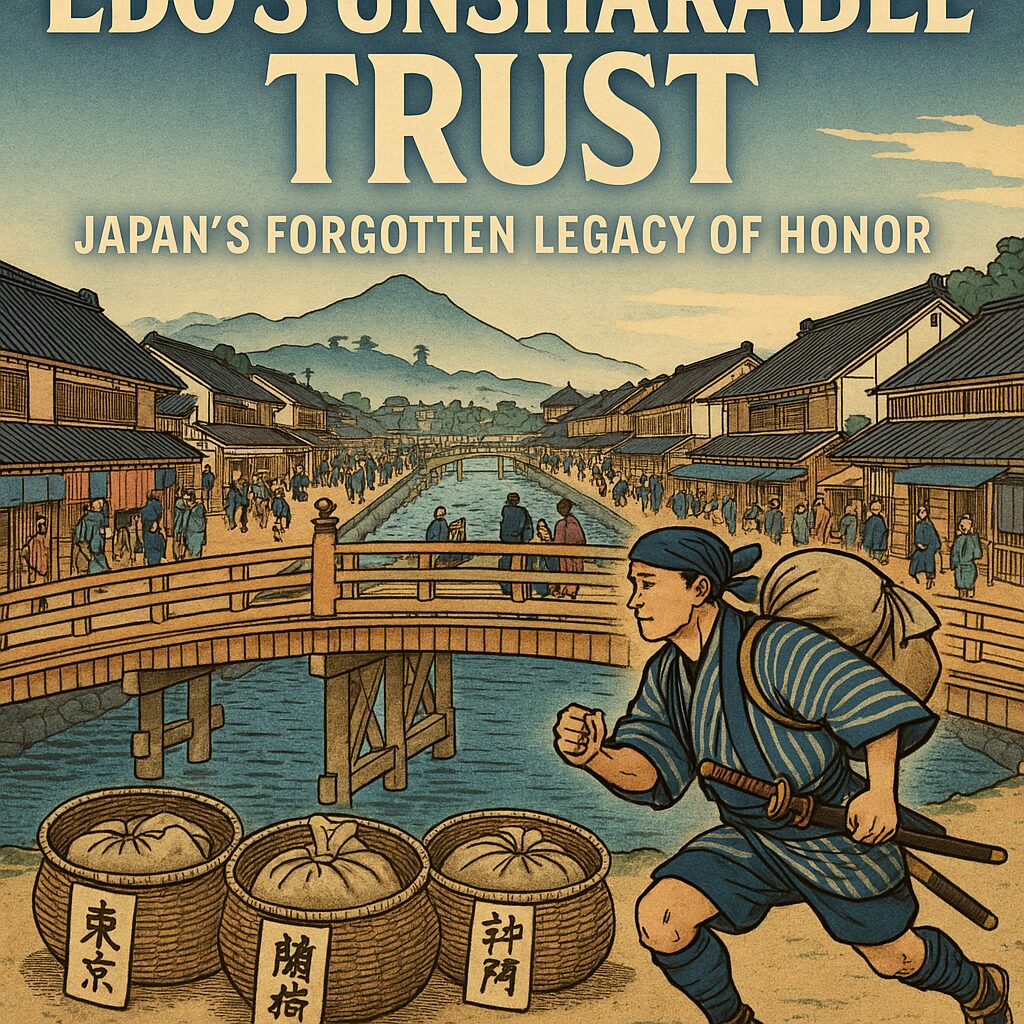In the 18th century, Edo (modern-day Tokyo) was the largest city in the world, with a population of over 2.5 million. Yet what truly set it apart wasn’t its size—it was its extraordinary level of public trust.
Imagine this: every day, thousands of gold coins were left in open baskets at a public money transfer station near Nihonbashi, the bustling heart of Edo. These baskets, labeled with the names of feudal domains, held wrapped bundles of cash destined for distant provinces. There were no guards. No locks. No surveillance. And yet—not a single theft was recorded in 265 years.
🏃♂️ The Gold Couriers of Edo
Money was delivered by “kane-bikyaku”, specialized couriers who ran across Japan’s highways with cash tucked into cloth bundles. Unlike regular messengers, they carried long swords for protection. But here’s the astonishing part: not once were they attacked during their journeys. Their presence was respected, their mission sacred.
🧺 The Unmanned Transfer Station
At Nihonbashi, the transfer station resembled a rural vegetable stand. Bamboo trays marked with domain names awaited deposits. Senders simply placed their money inside, added a note, and paid a small fee into a nearby box. No one watched. No one questioned. It was a system built entirely on mutual trust and civic virtue.
🔐 A Culture of Integrity
This wasn’t just a quirk of Edo—it was a reflection of Japan’s deep-rooted values. In the Kyōhō era (1716–1736), Edo’s main prison reportedly held zero inmates for 20 years. Not because officials were lazy, but because crime prevention was so effective that no one committed serious offenses.
Even in the 1960s, many Japanese homes had no locks. Families would leave for overnight trips without securing their doors. Theft was so rare that when a burglar finally struck, the only item stolen was a wooden mask hanging on the wall.
⚔️ The Decline of Trust
Sadly, this culture began to erode after the Meiji Restoration. Civil wars, modernization, and foreign influence disrupted Japan’s social fabric. Yet even in turbulent times, the Japanese spirit often leaned toward honor—like the kabuki character Nippon Daemon, who famously said, “I may steal, but I do not commit evil.”
🌏 Why Foreigners Are Drawn to Japan
Today, many visitors are amazed that vending machines in remote alleys remain untouched. But it’s not just low prices or safety that attract them—it’s Japan’s cultural soul. Tourists flock to temples, gardens, and traditional shopping arcades. Kyoto, not Tokyo’s skyscrapers, is the true dream destination.
Even Japanese youth are rediscovering their heritage. Films like Your Name and Suzume highlight rural landscapes and spiritual traditions. The allure of Japan lies not in modernity, but in its timeless values.



コメント